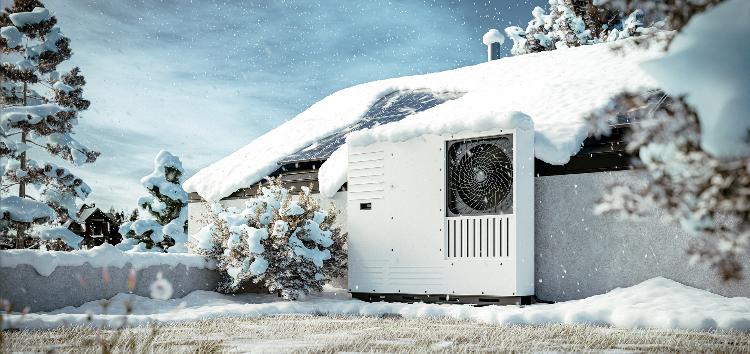In the village of Koshare in central Kosovo, a region known for harsh winters, the Sopa family, like many others living in the area, used to buy large amounts of wood each year to heat their home.
With every new winter, Florim Sopa regretted the amount of money his family would spend on heating their 250 m2 house, and started looking for opportunities to invest in a more sustainable and comfortable heating method.
Florim invested close to €7,000 in a heat pump and hot water storage tank, and received a €1,046 cashback incentive. He secured a loan under the European Bank for Reconstruction and Development’s (EBRD) Green Economy Financing Facility (GEFF), which works with local banks to on-lend funds to residential borrowers for investments in residential energy efficiency and renewable energy solutions. In Kosovo, ProCredit, Raiffeisen Bank, Kreditimi Rural i Kosoves and KEP Trust offer GEFF loans.
Although such home improvements can noticeably reduce energy use and long-term associated costs, the initial financial outlay can be high. To help homeowners invest in green solutions, the GEFF programme provides technical assistance and investment grants, and is supported by the European Union (EU), Austria, Japan and Switzerland through the High-Impact Partnership on Climate Action (HIPCA).*
“This investment allows us to save on energy costs every year and live in a warmer home with clean heating. Moreover, I am happy to contribute to a healthier living environment for my family and future generations,” says Florim.
Financing the investment through the EBRD’s GEFF programme does not only have financial advantages; it also guarantees that the technologies selected are energy efficient according to the EBRD’s eligibility criteria. The installation of the heat pump has brought the Sopa family more comfort and more consistent temperatures throughout their home, with lower energy use. The two green technologies will lead to energy savings of 1560 kWh per year and a reduction in CO2 emissions of 0.8 tonnes per year.
Decarbonisation of the Western Balkans
Households in the Western Balkans account for around 60-70 per cent of the energy used in buildings. Implementing energy efficiency measures in residential buildings is therefore critical to achieving energy savings.
Together with the EU and other donors, the EBRD provides financing and delivers policy support to harmonise countries’ laws and regulations on energy efficiency under the Regional Energy Efficiency Programme (REEP) for the Western Balkans.
So far, through the GEFF programme, more than 17,000 households in the Western Balkans have invested around €95 million in green residential solutions. These investments already contribute to saving more than 66 million kWh of energy and more than 23,500 tonnes of CO2 emissions each year. That is the equivalent of taking more than 14,500 cars off the road.
*The HIPCA, launched by the EBRD and partner governments at COP26 in 2021, is supported by Austria, Canada, Finland, South Korea, the Netherlands, Switzerland, Spain, the Taiwan International Cooperation and Development Fund (TaiwanICDF) and the United Kingdom.




